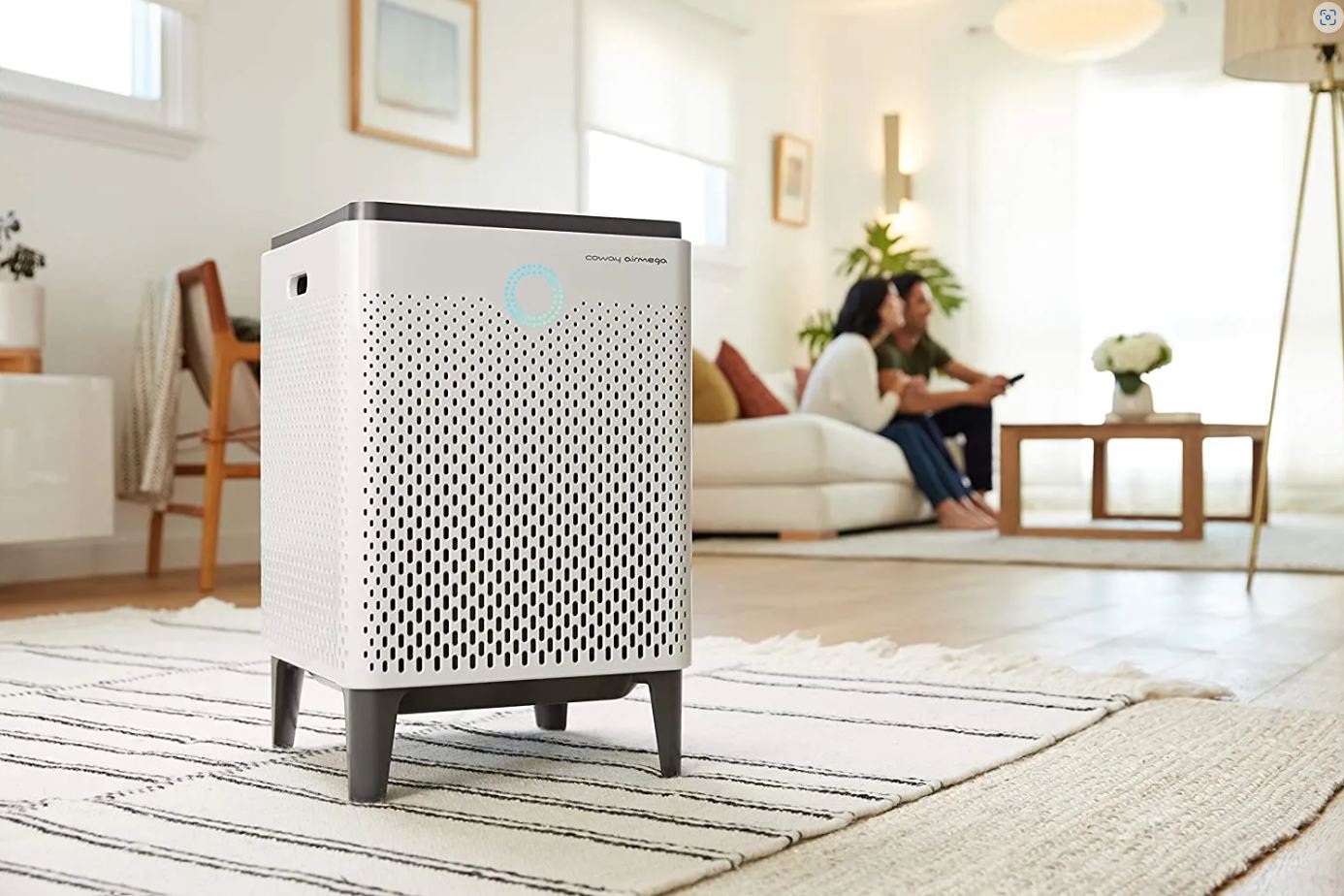Air purifiers have become increasingly popular in recent years, particularly as concerns about indoor air quality and pollutants have grown. These devices are designed to remove allergens, dust, pollutants, and even harmful particles from the air, improving the overall air quality in your home. However, as with any appliance, there are questions about the safety of regular use. In this article, we will explore the safety of air purifiers for daily use and whether they pose any risks to health or the home environment.
1. How Do Air Purifiers Work?
Before diving into the safety aspects, it’s important to understand how air purifiers function. Most air purifiers work by drawing in air through filters that capture various pollutants, dust, allergens, and airborne particles. There are different types of air purifiers, including:
- HEPA filters: These are designed to trap very small particles, including dust, pollen, mold, and bacteria.
- Activated carbon filters: These work by absorbing gases, odors, and volatile organic compounds (VOCs) from the air.
- Ionic purifiers: These devices release charged ions into the air to attach to particles, causing them to settle on surfaces or be captured in the purifier.
- UV-C light purifiers: These purifiers use ultraviolet light to kill bacteria and viruses in the air.
- Ozone generators: Ozone purifiers release ozone to eliminate bacteria, mold, and odors, though these devices are controversial due to safety concerns.
Most air purifiers are safe for regular use, but the type of purifier and how it’s used play an important role in determining overall safety.
2. Are HEPA Filter Air Purifiers Safe?
Safety of HEPA Filters
HEPA (High-Efficiency Particulate Air) filters are one of the most common and effective types of air purifiers, known for their ability to remove up to 99.97% of particles that are 0.3 microns in size, including pollen, dust mites, mold spores, and pet dander. HEPA filters work through physical filtration, which means they don’t release any harmful byproducts into the air.
HEPA filter-based air purifiers are considered extremely safe for regular home use, as they do not alter the chemical composition of the air or release potentially harmful substances. These purifiers are particularly beneficial for individuals with allergies, asthma, or respiratory conditions, as they help reduce exposure to allergens and airborne irritants.
Maintenance Considerations
To ensure safety and efficiency, it’s important to regularly change or clean the HEPA filters according to the manufacturer’s recommendations. A dirty filter can reduce the purifier’s effectiveness and, in rare cases, lead to the growth of mold or bacteria if exposed to moisture. Overall, HEPA filter air purifiers are among the safest options for daily use.
3. Are Activated Carbon Air Purifiers Safe?
How Activated Carbon Filters Work
Activated carbon filters are highly effective at removing gases, odors, and volatile organic compounds (VOCs) from the air. These filters contain a porous form of carbon that traps gases and chemicals, such as those emitted by household cleaners, paints, or cooking fumes. Since activated carbon purifiers do not emit harmful byproducts, they are also considered safe for regular use.
Benefits and Safety
Activated carbon filters work best when paired with HEPA filters, as they do not capture particulate matter like dust or allergens. They are safe for use in homes, particularly for individuals sensitive to odors or chemicals. As with HEPA filters, the activated carbon filters must be replaced periodically to maintain air purifier efficiency and safety.
4. Safety Concerns with Ionic Air Purifiers
How Ionic Purifiers Work
Ionic air purifiers function by releasing charged ions into the air, which attach to particles like dust or pollen, causing them to settle on surfaces or be captured by a collector plate inside the purifier. While ionic purifiers can effectively reduce airborne particles, they have been a source of debate due to their potential to produce small amounts of ozone as a byproduct.
Ozone and Health Risks
Ozone, a gas that is highly reactive, can irritate the lungs and exacerbate respiratory conditions such as asthma. Although ionic purifiers typically generate low levels of ozone, it’s important to choose models that are certified to produce ozone within safe limits. If ozone production exceeds recommended safety levels, it can negatively impact indoor air quality and pose health risks, especially for individuals with pre-existing respiratory conditions.
Safety Recommendations
If you’re considering an ionic air purifier, look for models labeled as “ozone-free” or those that produce minimal ozone. The U.S. Environmental Protection Agency (EPA) advises against the use of ozone generators in occupied spaces due to health risks, so it’s crucial to verify the safety of the device you choose.
5. Are UV-C Light Air Purifiers Safe?
The Role of UV-C Light
UV-C air purifiers use ultraviolet light to kill bacteria, viruses, and other microorganisms in the air. These devices can be highly effective in reducing airborne pathogens and are often used in hospitals, healthcare facilities, and homes to enhance air hygiene. UV-C light air purifiers do not produce ozone, which makes them safer than ozone-generating alternatives.
UV-C Light Safety
While UV-C light itself can be harmful to human skin and eyes if directly exposed, air purifiers that use UV-C light are designed to contain the light within the device. As long as the purifier is properly sealed and the UV-C light does not escape, these purifiers are safe for home use. However, it is important to follow the manufacturer’s safety guidelines to avoid exposure to UV light.
6. Why Ozone Generators Pose Health Risks
How Ozone Generators Work
Ozone generators release ozone (O₃) into the air, which reacts with and neutralizes pollutants, odors, and bacteria. However, while ozone can be effective at removing odors and certain chemicals, it is also a lung irritant and can cause respiratory issues.
Health Risks of Ozone Exposure
Ozone exposure can irritate the respiratory tract, worsen asthma, and reduce lung function, especially in individuals with pre-existing respiratory conditions or those who are more sensitive to air quality changes, such as children and the elderly. Ozone can also interact with other chemicals in the air to produce harmful byproducts, further reducing indoor air quality.
Safety Guidelines
The EPA and other health organizations generally discourage the use of ozone generators in homes due to the potential health risks. If you’re looking to improve indoor air quality, it’s better to choose a HEPA or activated carbon air purifier, which doesn’t produce ozone.
7. Ensuring Proper Use and Ventilation
Even with safe air purifiers, it’s important to use them correctly to avoid issues. Keep in mind the following tips for safe and effective air purifier use:
- Room Size: Choose an air purifier suitable for the size of your room. Using a device too small for a large space may not effectively clean the air, while using a powerful purifier in a small room can be unnecessary.
- Proper Ventilation: Even when using air purifiers, ensuring proper room ventilation is key to maintaining healthy indoor air quality. Open windows occasionally to allow fresh air circulation.
- Regular Maintenance: Follow the manufacturer’s instructions for filter replacements and cleaning. This ensures that your purifier continues to work effectively and reduces the risk of contaminants re-entering the air.
- Positioning: Place air purifiers in areas where airflow is not obstructed, allowing them to pull in and clean the air efficiently.
Conclusion
Air purifiers can be a safe and effective tool for improving indoor air quality when used appropriately and regularly maintained. HEPA and activated carbon air purifiers are generally considered the safest options for home use, as they do not emit harmful byproducts. UV-C light purifiers are also safe if properly designed to prevent direct UV exposure.
However, caution should be exercised with ionic air purifiers and ozone generators, as they can produce small amounts of ozone that may pose health risks. If you prioritize safety, choosing an air purifier certified by health and environmental authorities will ensure that it can provide clean air without compromising your health.




